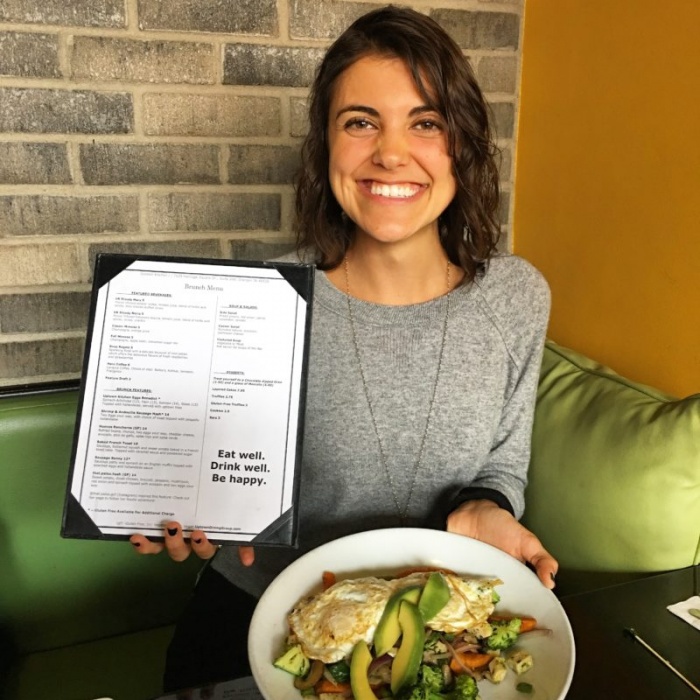
The person I’m featuring on the blog today is extremely special to me, probably in more ways than she knows. Today I’m sharing an interview with one of my dear friends, Liz Anthony from That Paleo Girl. I first found Liz on Instagram (@that.paleo.girl), of course, and quickly realized that we basically have the same exact taste buds. Her food always makes me drool. I really love her because she’s so real and down to earth, and her Instagram account reflects that. She doesn’t worry about topping smoothies with flowers and using a $900 dollar camera. She shares delicious, healing food – no “fluff” necessary. Also, her Chocolate and Greens Smoothie Bowl recipe is TRULY the best smoothie bowl recipe I have ever tried. It is so thick, creamy, and delicious. You absolutely have to make it ASAP.
Like me, Liz used food to heal her body. Whenever I find people like that, I’m immediately intrigued and want to know their full story. I learned that Liz and I have a lot more in common than just using a Paleo diet to heal ourselves. We had similar experiences with weight loss, stress, mysterious illnesses, and more.
Liz came to Los Angeles a few months ago, so we finally got the chance to meet up in real life. We went to Bulletproof Cafe in Santa Monica, and then we immediately went to Erewhon. And then to Kippy’s. I mean, would you expect anything else? She’s one of the only humans on this planet who would do that with me. It was my ideal night. Long story short, we hit it off and talked for hours about EVERYTHING. She is truly one of the most genuine people I have ever come across in my life. She’s hilarious, intelligent, authentic, and a true friend. She just gets it. You know? I feel like I’ve known Liz forever. She’s one of the only people I’ve ever met who really understands my experiences with my health issues because she’s been through it, too. That instantly bonded us.
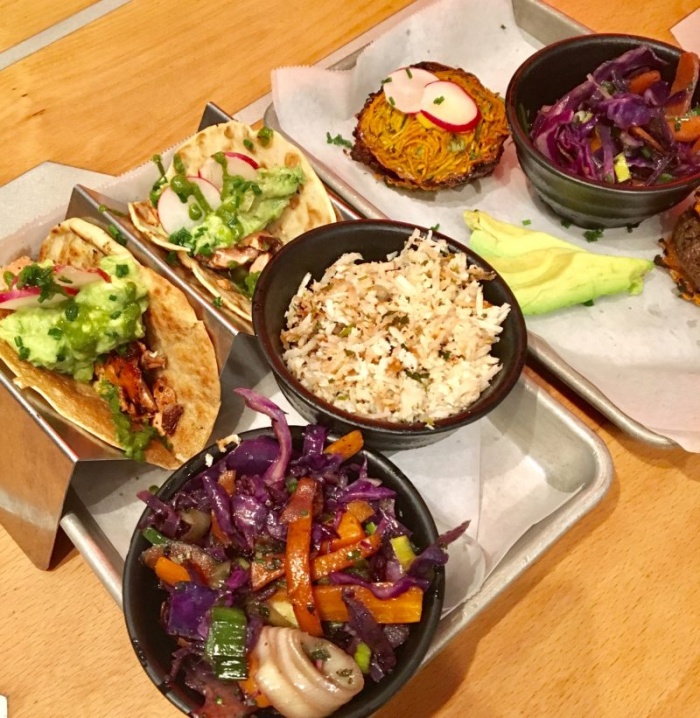
She recently published a blog post called “So Skinny It Hurts” that gave me chills to the root of my bones. I broke down in tears when I read it, because it perfectly described exactly how I felt only a year ago. You can read the full post here. Every sentence in that post was profound and struck a chord deep in my heart, but I wanted to pull a quote that really hit home for me.
“What hurts is knowing that women in our society equate beauty with a number on the scale. People assume that skinnier is always better without having even the slightest idea of what lies below the skin. Losing weight contributed to one of the darkest periods of my life but gaining weight did not reverse it. Beauty and happiness lie in confidence in and peace with yourself rather than a dress size. Health lies in nourishment and self-care, strength and self-love – not a certain weight.”
Mic. Drop.
Liz is extremely humble. As I learned more about her story, I grew to admire her even more. She is incredibly strong, and has a complex story of being diagnosed with lupus, Celiac disease, and PCOS. She has gone through so much, but has done it with so much grace, and no resentment. I don’t think she knows how incredible she truly is. She inspires me more than words can describe, and for that reason, I need to share her story with you guys, too. This interview brought me to tears, because it was just so powerful. I’m honored that Liz was willing to share it, and honored that she is allowing me to share it here. I’ll let you hear it from Liz herself to fully understand what I’m talking about.
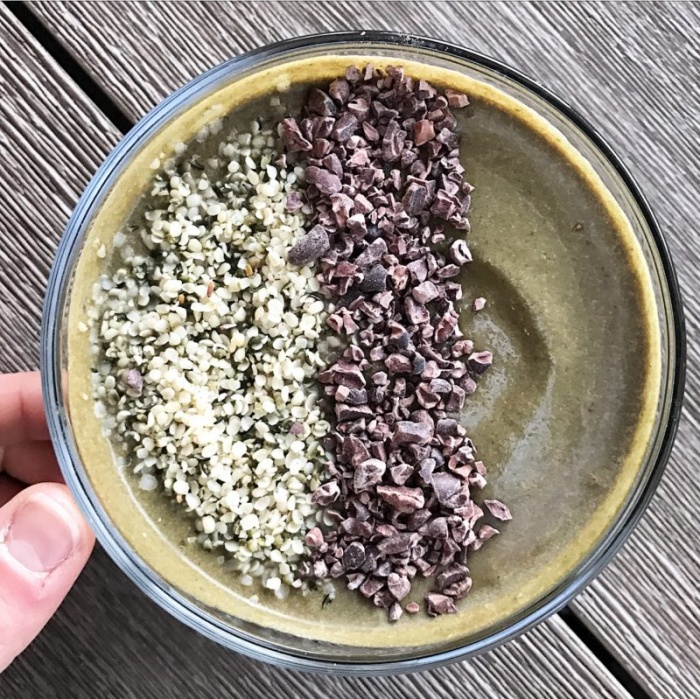
Introduce yourself to my readers!
Hi friends! My name is Liz and I am from a small town in northern Indiana. I graduated from the University of Notre Dame last year and work for the University now. I was a philosophy major undergrad (probably explains my love for Birkenstocks) but I have always been super passionate about education and now I work with Catholic schools. I still live in my hometown (where Notre Dame is located) in my parents’ house…don’t judge me.
When I’m not taking pictures of my food, I love to do pilates and yoga, spend time with my family and friends, and experiment in the kitchen. I am 100% basic and boring.
When did you first get into healthy eating? Have you always been healthy?
Prior to being diagnosed with lupus (more on that later), I did not eat healthy at all – in fact, I prided myself on being one of the few girls I knew who would eat a burger or a slice of pizza and not feel guilty about it. I definitely ate salads and veggies, but I also ate a ton of sugary cereal, pasta, bread, etc.
When did your health problems begin?
At 18 years old, I felt on top of the world – I was a straight-A student, ran 5-7 miles most days, tried to be the leader of every club, went out with my friends, and somehow managed to conquer the day on 6 hours of sleep. My only “health problem” was a bright red rash on my cheeks that appeared during the spring of my senior year of high school and just would not go away. Purely out of vanity, I decided to go to the doctor to get it figured out. My primary care doctor referred me to a rheumatologist who basically diagnosed me with lupus immediately upon seeing me for the first time (I now realize I had a very severe and distinct “lupus rash”). At this point, I was about two weeks into my freshman year of college.
The time span between my first visit to my primary care doctor about my rash and receiving my accurate diagnosis was less than two months, which is extremely rare for those with autoimmune diseases, so I consider myself very lucky in that regard. The ironic part is that the only symptom I had was the rash on my cheeks. Despite the fact that I did not experience any of the other classic lupus symptoms at the time, my doctor put me on multiple medications: a temporary steroid to aggressively treat the rash and another medication (which I was to take indefinitely) intended to manage lupus by suppressing my immune system. It wasn’t until I had been on these medications for a few months that the problems really began.
When did you first realize something was really wrong?
At first I started to feel more tired, get aches in my joints, find bald spots on my head, and occasionally lose my appetite – all classic lupus symptoms. My doctor and I took these to mean that my lupus was getting worse so we proceeded to increase my medications. After my third or fourth round of steroids coincided with a stressful start to my sophomore year, my appetite completely disappeared and I started to lose weight – fast. I didn’t want to lose weight, but I developed a total aversion to food and could not seem to stomach anything. I lost 25 pounds between the start of the semester and fall break that year (nearly 40 pounds total) and all of my friends, family members, and even professors and classmates worried about me. I spent countless hours curled up in a ball with stomach pain and laying in the doctor’s office with tears in my eyes that semester, but no one could figure out what was wrong. I hit rock bottom when I got an upper GI endoscopy to test for celiac disease and the doctor told me and my mom that I was “just anorexic and needed to eat.”
So I did. I stopped all of my medications (which I knew were contributing to my nausea) and forced myself to eat. Though I had started to become interested in the role that food plays in autoimmune disease, I ate literally anything that sounded good to me in an effort to gain weight. By the end of my sophomore year, I still felt terrible but I had gained back about five of the pounds I had lost – not many, but enough that my parents and my doctors permitted me to spend the summer in Ghana.
I left America in pretty poor health, but I returned two months later right on the brink of hospitalization. I had some sort of stomach infection or virus during my last few days in Ghana and developed a kidney infection almost immediately upon returning. When my doctor ran my blood work and saw that I was severely deficient in almost every vitamin and mineral, she ordered the blood test for celiac disease, which quickly and CLEARLY confirmed our suspicion that there was something else going on. It turns out that no one had ever bothered to run this very simple blood test – which is the most reliable way to diagnose celiac disease – until that point, despite the insane GI symptoms I had been experiencing for almost a year, the fact that my grandma has celiac disease and I had another autoimmune disease, AND the fact that one doctor specifically told me I did not have celiac disease and I was “just anorexic.” It still to this day makes me mad because one simple blood test could have changed my life a year earlier.
How did people react to you losing so much weight?
Most of my friends reacted just as I would have reacted in their places – they approached me with concern about my eating disorder and wanted to help me. The hardest part was convincing them that I did not, in fact, have an eating disorder but was actually experiencing very intense but very invisible health problems that caused me to lose weight. It’s important for me to mention that there were a select few people – including my parents, siblings, cousin, boyfriend at the time, and closest friends – who reacted with concern but never questioned whether or not I was telling the truth. I don’t know if I could have gotten through that time without knowing that these key people believed me.

How did you feel in response to losing all of that weight?
The truth is that when I look back on my weight loss, I remember losing my sense of self. I was forced to stop running because I was too weak. I stopped going to parties or even to dinner with my friends because I was either too exhausted, in too much pain, or too ashamed of the looks I would get as people stared at my emaciated body. I wondered if I was going crazy when doctor after doctor told me there was nothing wrong with me (have you ever questioned your own sanity? It’s not fun). I quit doing so many of the things I loved and I felt so far away from the person I once was, the person I had been so proud to be.
How did you finally start gaining back weight?
Right after I was diagnosed with celiac disease, I went to see a holistic doctor who helped me see that the food and medications I was putting in my body were destroying it rather than healing it. At this point, I had completely lost hope in the traditional medical system so I was willing to try anything, including a radical diet and lifestyle change. Upon leaving my first appointment, I jumped head first into the GAPS diet (basically a super low-carb version of the paleo diet) and stopped taking my medications (side note: this was one week before leaving to study abroad in Rome for the semester).
It took almost a full year of the GAPS diet and switching to a higher-carb version of paleo – in addition to really dialing in my sleep, stress, and self-talk – for me to start gaining weight again. Once it started, though, I was able to gain back nearly 30 pounds almost as quickly as I had lost it. This amazing, life-changing transformation all took place under the guidance of my nutritionist, Meg, whose help I sought after I found her on Instagram and saw that she also used a real-food diet to gain weight. I knew I needed to heal my gut and manage my autoimmune diseases if I was ever going to gain weight, but I needed Meg’s expertise, accountability, and friendship to make it all happen.
What all have you been diagnosed with? For people who aren’t familiar with those, can you give a basic definition of what each diagnosis means??
My major diagnoses are lupus, celiac disease, and PCOS. Lupus is a chronic inflammatory disease that causes your immune system to attack your own tissues and organs. It is an autoimmune disease and has a wide variety of possible symptoms, from fatigue and joint pain to liver and kidney failure. Celiac disease is another autoimmune disease in which gluten causes your body to attack the lining of your stomach. The most obvious symptoms of Celiac disease are stomach-related (like diarrhea and bloating) but other symptoms include migraines, insomnia, and mood disturbances. Finally, PCOS (polycystic ovarian syndrome) is a hormonal imbalance coupled with multiple ovarian cysts that together can cause irregular periods, infertility, etc.
What was the most difficult diagnosis for you?
Strangely enough, I think PCOS was the most difficult diagnosis for me because it came after my two other diagnoses when I was just so sick of being sick. I was on a good path to healing at that point but getting yet another diagnosis was such a shot at my positive outlook at the time. My lupus diagnosis meant nothing to me because I didn’t really know what it meant and it didn’t immediately impact me, and my Celiac diagnosis was an enormous relief to me because it finally explained all the problems I had been experiencing.
How did you balance everything while still being a student?
It would be misleading to say I “balanced” everything while still being a student because I gave up so much. I forfeited many nights out with friends and activities I would have loved to do in order to prioritize my health. In hindsight, I realize that I should have put less stress on myself to excel academically because that stress significantly hindered my progress on the health front, but I was doing the best I could to heal while still doing all the things I dreamed of doing for so long.
What was it like going abroad while battling your health issues? Did you ever regret it or fear you wouldn’t be able to do it?
Though it was EXTREMELY difficult at times and I most definitely feared I wouldn’t make it through, I never regretted my decision to go to Ghana or to go to Rome. The two months I spent in Ghana were two of the most trying months of my life – the culture was unfamiliar, the lifestyle was uncomfortable, my friends and family felt galaxies away, and I was sick as a dog every single day (eating white bread at every meal before I knew I had Celiac). But I chose to go to Ghana and I chose to stay because I knew that I was more than my illnesses and I was determined to preserve the other parts of myself that I feared I would lose forever. I had always dreamed of living in other countries, traveling, and having unique experiences; maybe I should have put those dreams on hold to prioritize my health, but I honestly think the emotional blow of doing that would have been too much for me to handle. In hindsight, I am amazed at my own audacity but so, so grateful for those two experiences.
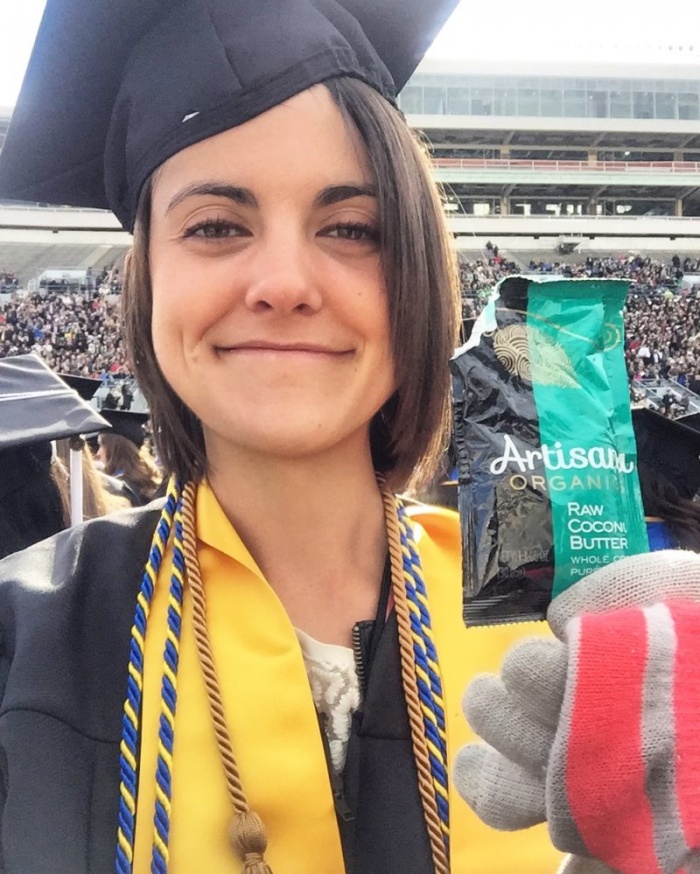
Does anyone else in your family have an autoimmune disease?
Yes. My mom’s mom has Celiac disease and Hashimoto’s and my mom’s brother has Type 1 diabetes.
How do you eat now?
I eat a real-foods diet rich in vegetables (including starchy veggies), healthy fats, and animal proteins. I spend WAY less time thinking about the food I eat now than I once did because it has become second nature to me. I love the foods that I eat and the feeling that comes from truly nourishing my body. I try not to spend too much time thinking about the amount of fat vs. carbs vs. protein that I eat; instead, I seek to maximize the number of micronutrients I get at each meal and focus on the way food makes me feel – everything else just seems to fall into place.
My diet can most easily be classified as paleo but I am starting to get more and more frustrated by that term because people use it as dogma or a rulebook instead of a template or philosophy. I will never turn down a food because it “isn’t paleo” – I might turn down a food because my body does not process grains well or I don’t care for the way refined sugars make me feel, but I think those reasons involve a different level of empowerment and knowledge than “it’s not paleo.”
At what point did you feel like you started to really get better?
I had a few different turning points in my health journey.
1. When I started GAPS – my inflammation dropped dramatically, I could finally eat food again, my immune system improved, and my energy came back (at least a little bit). If I had not switched to GAPS, I do not think I could have studied abroad or even stayed in school in South Bend.
2. When I started working with Meg – after almost a year on the GAPS diet, Meg helped me refine my diet to actually start to gain weight. But even more importantly, she helped me develop a new attitude towards my illnesses, my body, and myself. I started to treat myself with more compassion and love, a critical move in my healing process.
3. When I graduated college – I absolutely LOVED my university and my friends there, but it wasn’t until I graduated college that I realized how much stress I had been under every. Single. Day. I now have a job that I love and lifestyle that makes me happy and promotes my health – and there is no guilt associated with any of that. Moving on to this new phase of my life and leaving so many stressors behind me really allowed me to turn the final corner on my healing journey.
What was your overall experience like in the medical system? What have you learned in dealing with so many doctors?
I still see my traditional rheumatologist in addition to my holistic doctor because my rheumatologist is an expert in my disease and I trust her knowledge. Having said that, she still suggests that I restart medications every time I see her despite the fact that my health only continues to improve, which I have to politely decline. I think this relationship illustrates how I feel about the traditional medical system: doctors are well-trained and SMART, so I think they should serve as a source of knowledge for us; however, doctors do not always have the right answer. We have to do our own research, listen to our bodies, and decide for ourselves what is right for us. No doctor is the expert on your body. If you feel sick, no one can tell you that is not true. Trust your gut and empower yourself to make the best decisions for your own health.
How did your health journey affect the relationships in your life? Did you lose/gain friendships? What about how it affected your family?
This may sound cheesy, but the truth is that my health journey helped me see who my real friends are. When I lost so much weight, there were tons of people who told other people I had an eating disorder or talked behind my back about what was going on, but there were a select few people who supported me every step of the way – those were my real friends. When I stopped drinking alcohol and staying out late at parties, there were tons of people who stopped talking to me entirely or lost interest in me because I wasn’t “fun” anymore, but there were a few people who always went out of their way to make me feel included or do different things that were more fun for me. Those were my real friends. I left college with a large group of acquaintances but a very small group of true friends, and I am strangely thankful for the opportunity to find and appreciate true friends.
And as far as my family goes, this journey has led me so much closer to each of my siblings and both of my parents. Our relationships have certainly changed as we all have changed, but I have never felt closer to them. I have seen/heard every single one of them go to bat for me at one point or another. I know that even if they do not fully understand my lifestyle now, they support it because it makes me healthy and happy. I am so fortunate to have a supportive, loving, and generally awesome family that has stood by me every step of the way.
What made you start your Instagram account?
I felt pretty isolated eating such nontraditional, healthy food on a college campus in the Midwest where hardly anyone was gluten free, let alone paleo. I started following a bunch of food accounts on Instagram for inspiration and connecting with a huge, virtual community. I eventually decided that I should start contributing to the community instead of just stalking other people, so I started my food Instagram account (@that.paleo.girl) but didn’t tell anyone I knew in real life because I was too embarrassed. Eventually one of my friends accidentally stumbled upon my profile and then I had to let the cat out of the bag. I thought all of my friends would ridicule me, but they all absolutely loved it and have been huge supporters since the day they found it.
How did you transition into starting a blog?
As my Instagram following started to grow, I found myself sharing the same recipes, stories, tips, and tricks over and over and over again via comments, DMs, emails, texts, etc. I finally decided to start a blog so that I would have a single place to share all of my resources. I also thought that having a blog would give me the opportunity to share more than just food. I love pics of smoothie bowls just as much as the next basic bitch, but I want people to know that there is so much more to real health and happiness than just food, and I hope that some of my blog posts will help me communicate that.
What are your some of your go-to meals/ favorite recipes?!
My two favorite recipes of all time are my hamburger stew and chocolate and greens smoothie bowl. I eat one of these two recipes every single day that I can. More generally, though, my meals are not complicated or fancy. I generally eat a loaded salad every day for lunch and some combination of meat and veggies for dinner. I looooove almost all soups and I will add avocado to just about anything. I’m sure my food is weirder than I make it seem because people are always very curious about it, but this way of eating has become second nature to me now so I don’t even think twice about it!
What’s been the most important lesson you’ve learned on your health journey?
Know yourself, trust yourself, love yourself, and be yourself. If I did not know myself and trust myself, I never would have continued to search for answers after so many doctors told me I was crazy or prioritized sleep in college instead of going out like everyone else. If I wasn’t confident being myself, I would have caved to societal pressures to drink or to take meds instead of committing to a process of natural healing. Most importantly, if I did not love myself, I never would have given myself the grace to forgive my body for the many ways in which I felt it had betrayed me. Know yourself, trust yourself, love yourself, be yourself. Health and happiness will follow.
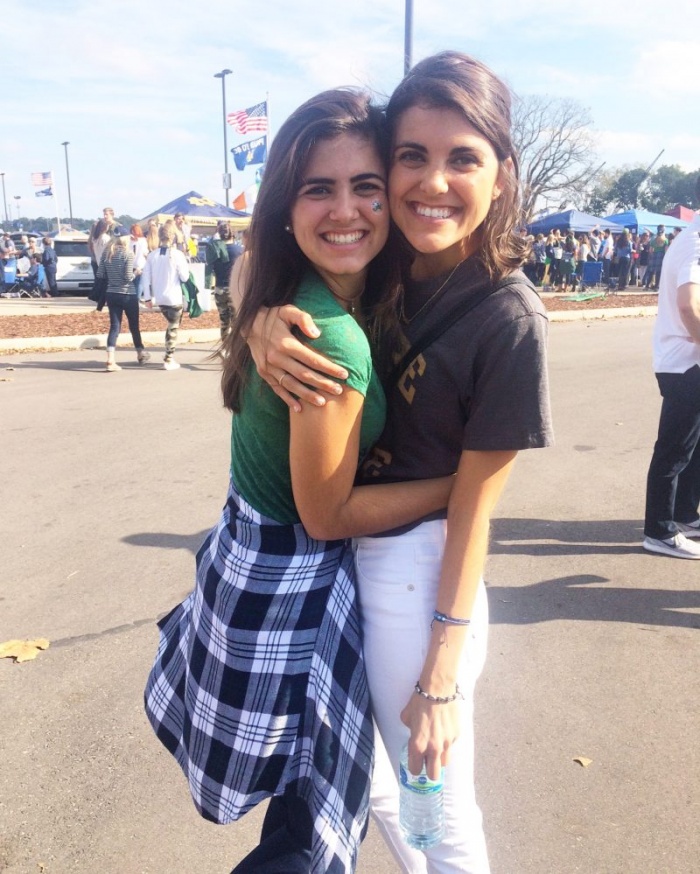
There you have it. She’s incredible, right? Make sure to follow her on Instagram (@that.paleo.girl) and check out her blog, thatpaleogirl.com, for delicious recipes! Thank you, Liz, for taking the time to answer my questions and for sharing your story with the world. You are truly a lovely human.


